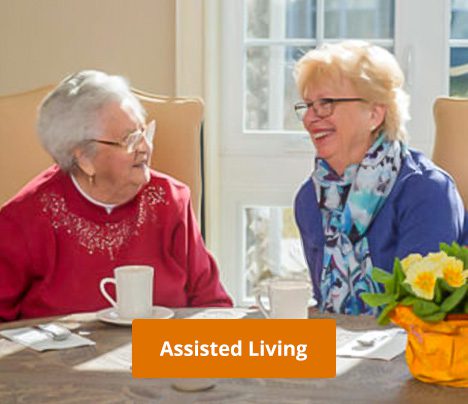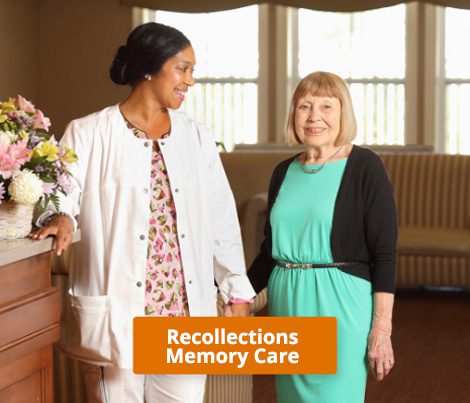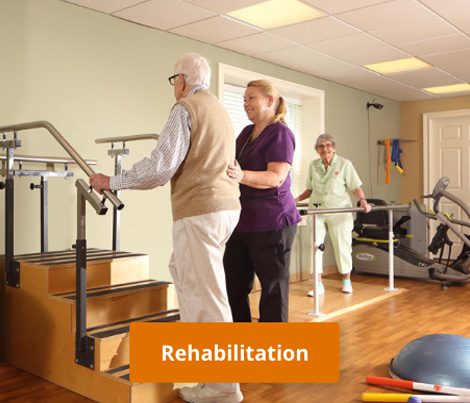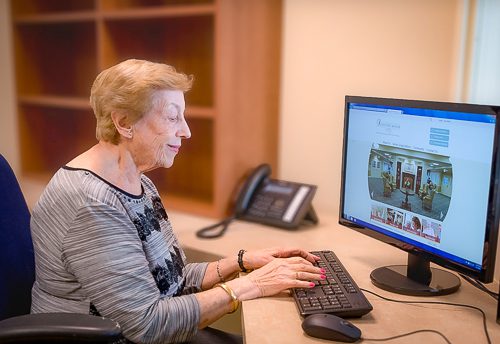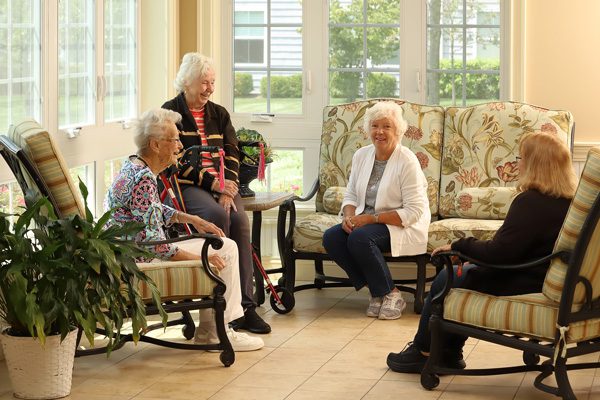Ready to Spring Forward?

The “spring forward” is just around the corner. Get tips to help your loved ones – and yourself – breeze through the time change this spring.
 Whether you’re looking forward to the longer, lighter days of spring or you prefer the cozy, dark evenings of fall and winter, the first few days after a time change can leave everyone feeling a little “off.”
Whether you’re looking forward to the longer, lighter days of spring or you prefer the cozy, dark evenings of fall and winter, the first few days after a time change can leave everyone feeling a little “off.”
While that “off” feeling is normal when the clocks reset, the time change in spring can be more challenging than the time change in fall, especially for seniors.
Read on to learn more, plus get tips to help your senior loved ones – and yourself – ease into spring.
Spring Forward: Resetting the Clocks Resets the Body
A spring “reset,” like spring cleaning, eating lighter food, and getting outdoors can feel terrific. But, resetting the clocks in spring can be a little bumpy!
That’s because resetting the clocks resets your circadian rhythms, too. Circadian rhythms are physical, mental, and behavioral patterns that are based primarily on light and dark throughout the day.
Circadian rhythms follow a twenty-four hour clock and tell your body what time to sleep, awaken, and eat. So, when you remove an hour from the clock, you may feel out of sorts for up to a week as your body adjusts.
For most people, the change to daylight saving time in the spring is more challenging than the change back to standard time in the fall. This is especially true for seniors, who may already be experiencing age-related sleep disruptions.
So, it’s important to be prepared and make the transition as easy as possible on yourself and your senior loved ones.
Why is the Spring Time Change More Challenging?
The “spring forward” can be more challenging for two reasons. First, everyone loses an hour of sleep! Aside from feeling tired, lost sleep can lead to difficulty focusing, low mood, and changes in physical coordination. (In fact, there are more accidents reported just after the start of daylight saving time than at other times of year.)
Second, the darker mornings right after the time change make waking up and starting the day more difficult. After all, our circadian rhythms tell us that when it’s dark outside, it’s time to sleep.
Changes in patterns of sleeping and eating can affect digestion, balance, and cognition. For many seniors, these areas already require extra care and attention due to normal age-related changes and common health conditions.
For seniors with Alzheimer’s dementia and other cognitive challenges, changes in routine are particularly disruptive.
While most people return to normal in a few days, making the change as gradual and easy as possible can help you and your loved ones return to normal more quickly.
5 Tips for Helping Seniors (and Yourself) Adjust to Daylight Saving Time
Here are some tips to help you and your senior loved ones adjust to daylight saving time.
-
- Make a gradual change. Try going to bed 10-15 minutes earlier in the days leading up to daylight saving time. Not only does this make the transition less abrupt, but it means you’ll be better rested when the clocks spring forward.
If you are caring for a loved one in your home, especially someone with cognitive challenges, begin to shift other routines like mealtimes and rest times, too.
- Make a gradual change. Try going to bed 10-15 minutes earlier in the days leading up to daylight saving time. Not only does this make the transition less abrupt, but it means you’ll be better rested when the clocks spring forward.
-
- Keep your schedule. On Sunday morning after the time change, get up at your usual time, rather than sleeping in. This will make it easier to fall asleep Sunday night and start the week well rested.
-
- Lighten up! In the days following the time change, try to spend some time outside in the morning light. Or, if it’s too cold or rainy, open the curtains to let in as much light as possible.
-
- Take it easy on caffeine and alcohol. Both caffeine and alcohol disrupt sleep. You don’t have to cut out your morning coffee or evening cocktail, but do practice moderation in the days before and after the time change.
- Practice good sleep hygiene. Step away from screens about an hour before bed. The blue light from screens – and sometimes the material on the screens! – is another sleep disrupter.
Remember, these same tips can help when the clocks “fall back,” too. And, good sleep hygiene is helpful all year long. While the time change can be an inconvenience, with a few simple adjustments you and your loved ones can breeze through!
Learn More About Why Families Rely On Sunnyside Manor
When you have questions about senior living, we are here to help. Sunnyside Manor offers assisted living, memory care, and skilled nursing and rehabilitation. Learn more about Sunnyside Manor’s resources for caregivers. Whether you’re looking for short-term support or a longer-term plan, begin with our “Getting Started” guide. Please call us at 888-696-2052 to speak with a senior living expert.
Sunnyside Manor, located in Wall NJ, is the area’s premier family-owned senior living community. The community features three distinctive neighborhoods: Independence ‘Plus’ Assisted Living, Recollections Memory Care, and Skilled Nursing and Rehabilitation.


